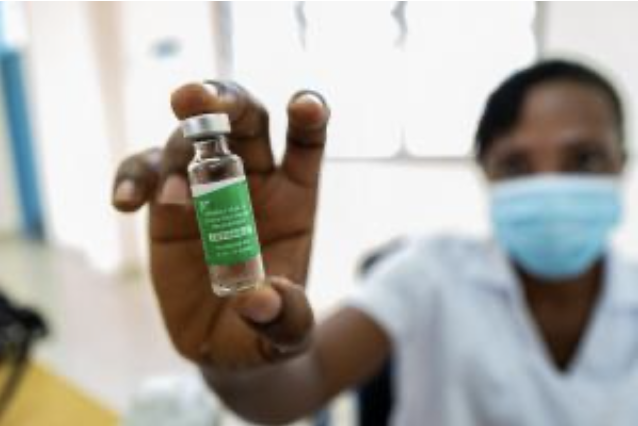
What is Africa’s vaccine production capacity?
April 6, 2021
COVID-19 vaccination in Africa is gathering pace, with more than 7 million doses so far administered. But the continent received vaccines later than other regions of the world and in limited quantity. A few weeks after launching vaccinations, some countries are nearly exhausting their initial supplies. Professor William Ampofo, chairperson of the African Vaccine Manufacturing Initiative, discusses vaccine manufacturing in Africa.
What is the current vaccine manufacturing capacity in Africa?
There are fewer than 10 African manufacturers with vaccine production and are based in five countries: Egypt, Morocco, Senegal, South Africa and Tunisia. There is very limited upstream production with most local companies only engaging in packaging and labelling, and occasionally fill and finish steps. Noteworthy, there are about 80 sterile injectables facilities on the continent, which may provide an opportunity for vaccine production given the primary dosage form in Africa is vials.
How does that capacity affect vaccine availability in the continent?
Almost all the current vaccine capacity in Africa is focused on supply to internal country markets with very little export taking place. Current capacities are modestly scaled with a glaring absence of large-scale (fewer than 100 million doses) capacity.
As highlighted by COVID-19, this severely limits vaccine availability in disease emergency situations as there is no immediate readiness to repurpose facilities for large-scale production through partnerships. It is therefore vitally important that African vaccine manufacturers establish supply networks to export to markets (in Africa and elsewhere). Supply chain could use the existing economic zones in Africa. For example, the Economic Community of West African States.
How does Africa source vaccines and what are the challenges?
Most African countries are supplied with vaccines by UNICEF supported by Gavi, the Vaccine Alliance, with fewer than 10 countries being self-sufficient in terms of vaccine procurement. This has led to a very specific shaping of vaccine markets in Africa where more than 1.5 billion doses are supplied through UNICEF.
Consequently, this presents enormous challenges when trying to establish sustainable vaccine industries in Africa which would ideally require advance purchasing support from African governments. In the current dispensation this is simply not possible when most countries don’t buy their own vaccines and therefore cannot commit to buying locally manufactured vaccines.
What are the impediments to developing African vaccine self-sufficiency?
The biggest impediment is the way vaccine markets are structured in Africa. Without the commitment and support to buy vaccine manufactured in Africa it will forever remain a difficult challenge to build a sustainable industry capable of producing vaccine doses at scale.